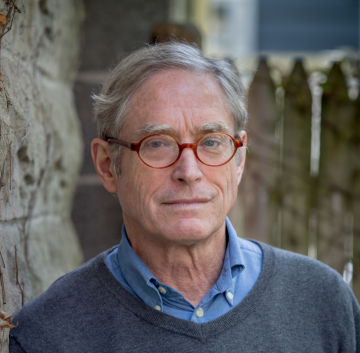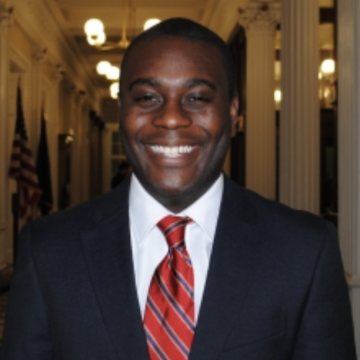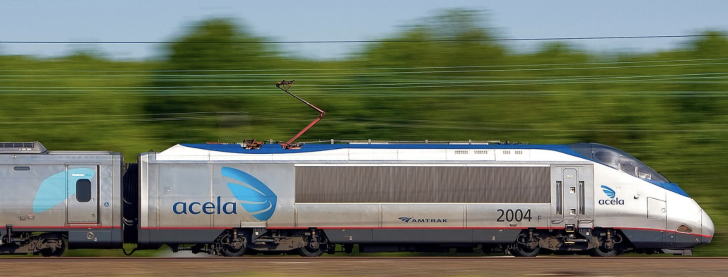Whitcomb: 75 Should Be the Max for Feds; No Pardons; Competition for Amtrak; COVID Camouflage
Sunday, September 10, 2023
I strove with none for none was worth my strife.
Nature I loved, and next to nature, art;
I warmed both hands before the fire of life.
It sinks, and I am ready to depart.
-- Walter Savage Landor (1775-1864), to mark his 75th birthday
“Millions long for immortality who do not know what to do with themselves on a rainy Sunday afternoon.’’
-- Susan Ertz (1887-1985), Anglo-American writer
“Some of us spend our lives preferring Fall …taking Spring only as prologue and Summer as the gently inclined platform leading all too slowly to the annual dazzle.’’
-- Donald Hall (1928-2018), American poet and essayist, in Seasons at Eagle Pond (in Wilmot, N.H.)
Brief drama at a beach on Buzzards Bay last Tuesday. An older woman, seemingly on the edge of panic, sought our help in bringing her to dry land, even though she was only up to her waist in water, whose surface was flat on that virtually windless and oppressively hot and humid day.
But as I waded in to get her, I felt the problem – a powerful undertow, presumably a delayed effect of far-off tropical storms. It was strong enough to tip you over if you weren’t careful, especially if you were old like the lady and me.
“Thank God you people were here,’’ she said, as a little dog kept circling her in joy. The beach has no lifeguards, and it was almost deserted when we showed up.
And bring meat tenderizer to the beach if you plan to swim? The warmer water that’s associated with climate change has brought us increased numbers of stinging jellyfish. Shaking tenderizer on skin helps reduce the effects of the venom. Also, watch out for dangerously venomous Portuguese men o’war, the creatures with the graceful, colorful balloons. They aren’t jellyfish, but like them, more and more are heading this way from the semi-tropics. Better get a wetsuit.
Wild creatures are changing with our climate, and so must we.
xxx
There seem to be more acorns than usual on the ground this year, but maybe it seems that way most years, especially if you get hit in the head by them.
xxx
Kudos to Gabe Amo, the smooth, well-experienced federal official and political operator who won the Democratic primary in Rhode Island’s First Congressional District last Tuesday. Meanwhile, my friend Walter Berbrick, whose numerous assets include being an expert on global warming, did well enough, despite a late start, very little name recognition, meager media coverage, and comparatively few other resources, to show that he has a future in politics.
It is probably good news for the Democrats that its primary voters seem to prefer candidates in the party’s mainstream.
xxx
“The Senate is the most privileged nursing home in the country. I mean, Mitch McConnell has done some great things, and he deserves credit. But you have to know when to leave.”
--GOP presidential hopeful Nikki Haley (51), on Fox News
Of course, we need age limits on government officials! Look at the doddering Senate. Look at Trump and Biden. I’d say a maximum age of 75 for presidents, members of Congress, and the entire federal judiciary should be the limit.
xxx
No, Trump and his fellow traitors should not be pardoned. Pardons would just encourage more corruption and depravity. That’s what happened with the pardons of leading Confederates after the Civil War. Such leniency encouraged the rise of the KKK and the death of Reconstruction, which led to the vicious suppression of black people.
And Nixon shouldn’t have been pardoned by Ford. The pardon corrosively undermined respect for the law, as Trump, et al. have been doing all along as they’ve tried to make America into a kind of mafia state.
xxx
Ah, ravaged-looking geezer rock bands cheered by ravaged-looking geezer audiences at PBS fundraisers. How will PBS make up the money when they’re gone?
The Past Still Isn’t Past
Few writers have written so interestingly about how deep cultural history affects Americans, as has Colin Woodard. He directs the Nationhood Lab, at Salve Regina University in Newport, and is the author of six books, including American Nations: A History of the Eleven Rival Regional Cultures of North America.
(Another useful work to read in this discussion is Albion’s Seed: Four British Folkways in America, by David Hackett Fischer.)
I’ve written variants about some of this before. Below is a mix of my (mostly old) opinions and my take on Mr. Woodard’s research and ideas.
Why are some parts of the country much healthier, better educated and richer than other parts? For instance, the Northeast and Middle Atlantic states are (comparatively) rich, while the Deep South and Appalachia are poor and have bad indices of health, including on longevity. Mr. Woodard argues persuasively that much of this can be explained by who the first Europeans who settled in these regions were.
What he calls “Yankeedom,’’ founded in New England, and whose creation was mostly led by highly literate English Puritans, emphasized the common good, orderly and open government, education, public health and skepticism. Over time it became relatively tolerant (by American and world standards) toward new immigrants and minorities of all kinds. People from this region spread these values all the way to northern California and the Pacific Northwest. Then there’s its allied region, what Mr. Woodard calls “New Netherland” (Greater New York), with its emphasis on trade (the Dutch founders were intensely mercantile) tolerance, multiculturalism and freedom of belief.
The “Deep South,’’ for its part, was established, Mr. Woodard and others have noted, as a sort of feudal slave-based society and developed into a land of extreme inequality where the common good was mostly ignored in favor of furthering the power and wealth of the ruling class, originally planters. Such things as public health and education have gotten short shrift, in part to keep taxes very low, to benefit the lucky folks at the top.
Then there’s “Greater Appalachia,’’ the core of whose European settlement was embittered farmers from Northern Ireland, Scotland and northern England who had been compelled to leave because of such challenges as enclosures of once open land by rich landowners, as well as by religiously and politically based strife. Appalachian people tend to be suspicious of outsiders and even of education, and to have a certain tolerance for personal violence that accompanies its intense gun culture. So it remains backward and poor, despite receiving, as with the Deep South, more than its fair share of federal money. Our 18th-century federal system gives these regions disproportionate political power in Washington.
The low level of education helps keep these regions poor and discourages invention and innovation. It makes their inhabitants particularly vulnerable to demagogic politicians’ appeals to racism and other bigotries, and to political lies in general. This leads many people there to vote against their own socio-economic interests and to let regional elites do what they wish – including ravaging the environment. Moralistic complaints from leaders in other parts of the country are ignored. Who cares what outsiders think?
That those demagogues include a con man/gangster from Queens is one of the more bizarre developments in recent political history.
"If you can convince the lowest white man he's better than the best-colored man, he won't notice you're picking his pocket. Hell, give him somebody to look down on, and he'll empty his pockets for you."
--- Lyndon Johnson (1908-1973), in 1960. The Texan was president in 1963-1969.
For many decades, the South and parts of Appalachia (aided by ever-expanding air conditioning) have been touted as among the lands of the future, and yet the Northeast and Middle Atlantic states have continued to be the healthiest and richest sections of the country. Their early histories explain much of that. I don’t think things will change much, even if our part of the country subsidizes these Red States even more than we have.
xxx
In my comments last week on Malcolm Harris’s brilliant if polemical book Palo Alto, I might have added the long rivalry and cross-fertilization between the great high-tech and research-and-development centers of the San Francisco Bay area and Greater Boston. Perhaps not coincidentally much of the Bay Area’s settlement post separation from Mexico originated in the Northeast.
Continuing COVID
As new COVID 19 variants, apparently quite mild, spread, as usual we’ll have to find a balance between protecting the public’s physical health and political and economic health, which of course affects physical health. The era of massive lockdowns, school closures, and so on is over. Society, including our economy and politics, wouldn’t do well dealing so soon with the sort of disruption from pandemic rules we had in 2020-2021, at the height of the pandemic.
Meanwhile, let’s get our new booster shots, and if you’re particularly vulnerable to the effect of respiratory infections, or just naturally anxious, by all means wear a face mask, as so many people have done for decades in such places as East Asia. And the mask makes it much easier to avoid people you don’t want to talk with.
Moving News
Bike Newport and the City of Newport are creating a 20,000-square-foot “traffic garden” In the city’s Miantonomi Memorial Park. The site will have painted “roads’’ to help bicyclists, particularly children, practice riding in a dense city environment (like much of Newport) while learning the rules of the road.
Such practice might save a few lives.
Given the awfulness of many car and truck drivers, maybe we need a much larger version of a traffic garden for the drivers to relearn the rules of the real roads.
xxx
This is really good news.
Not only is the Biden Administration’s infrastructure law (which most congressional Republicans voted against) pumping $66 billion into improving Amtrak, but other, private companies are getting into passenger rail, as gridlocked highways, an aging population, and a stressed, understaffed and unpredictable aviation system make more and more people want to take the train. And, of course more trains and less highway traffic mean less pollution, addressing global warming and providing at least a modest discouragement of sprawl. And they’re good for the social and economic health of downtowns, where most of the big train stations are.
Consider Brightline, which will soon offer service between Orlando and Miami. The company has been providing service between Miami and West Palm Beach for five years. I’ve seen its spiffy trains.
The next huge project on Brightline’s agenda: a $12 billion high-speed railway from Las Vegas to Southern California, with trains zipping along at 186 mph. (Too fast?) The company wants to get the line operating by 2028.
There are also plans for a line connecting Dallas and Houston and another linking Portland, Ore., Seattle and Vancouver, B.C., and California is building --- too slowly and expensively – its 500-mile line to connect Los Angeles and San Francisco. The cost is now projected to reach $128 billion! Doing transportation projects in America is much more expensive than in other “Developed Nations’’ because it has too many layers of regulation – local, state and federal – and ridiculous levels of progress-blocking litigation. As the old line goes, “Life is too short for litigation.’’
It seems to me that there are several routes in New England with enough population density to support new private rail-passenger lines. One, which has long been envisioned, would connect Providence and Worcester. And one between Concord and Manchester, N.H., and Boston?
xxx
With cars having more fuel-efficient internal combustion engines and the rise of electric vehicles, states are losing a lot of gasoline-tax revenue, which they need to help pay for transportation infrastructure.
What to do?
One partial solution is charging car owners a vehicle miles traveled (VMT) fee, maybe with a credit against gas tax paid. This requires permanently installed onboard devices and/or mobile phone apps to measure, but all doable. After all, states have mastered automatic billing on toll roads.
In any event, something’s gotta give.

Robert Whitcomb is a veteran editor and writer. Among his jobs, he has served as the finance editor of the International Herald Tribune, in Paris; as a vice president and the editorial-page editor of The Providence Journal; as an editor and writer in New York for The Wall Street Journal, and as a writer for the Boston Herald Traveler (RIP). He has written newspaper and magazine essays and news stories for many years on a very wide range of topics for numerous publications, has edited several books and movie scripts and is the co-author of among other things, Cape Wind.
Related Articles
- Whitcomb: Providence Recession Prep; Maine Chance; Extended-Family Housing
- Whitcomb: Need Giant Venus Flytraps; After-School Learning; Oh, for a Trial! Coastal Conundrum
- Whitcomb: Trust Troubles; Take Their Money; Bank Roulette
- Whitcomb: At the End; Parking Over Housing; Steam From the River; Bearing Witness
- Whitcomb: Newport Spring; Order a Tree; Read While Traveling; Immigrant Solutions
- Whitcomb: Old Walks; Shoreline Stuff; What’s Meant by ‘Best’? Local Boy Right-Winger and Great Leak
- Whitcomb: Road Blocks Coming? Getting Out of the Booths; They’re No ‘Ladies’; Soothing Rx for Social
- Whitcomb: America Fuels Mexican Violence; Primary Problem; Ivy League Price-Fixing? Perry Mason
- Whitcomb: What Went Wrong; Can’t Make a Decision; Back to the Pequot River?
- Whitcomb: Lunching on Old Times; Bike Lanes in Newport; ATVs; A Spy Writer’s Material
- Whitcomb: Easter Ambiguities; Fortuitous Follies; Tracks to South Coast; Guns Galore
- Whitcomb: Leisurely Lunches; Unchecked Candidates, Goncalves Fiction; Ceiling Cracks
- Whitcomb: Neighborly Taxes; Affirmative Action by Other Means? Don’t Gum Up the Turbines; Wet Power
- Whitcomb: Heartwarming Entertainment in Arctic; Can’t Win on Immigration; Parking Districts
- Whitcomb: Armory, Our Inconvenient Castle; Bikes and Business; ‘Woke’ Myth; RIP Reynolds
- Whitcomb: Diversify Your Plants; Where to Charge It; Suckers in Sewer; For Fairer Social Security
- Whitcomb: Warm Up the Warming Issue; In Search of Supplies; Home Hell and Comfort
- Whitcomb: “Improvements’ That Turn on Us; Offshore Obfuscations; Seal of Disapproval
- Whitcomb: I Headed for the Hills; Ukraine Needs These Things; Antidote to Abortion War?
- Whitcomb: Torpor Time; Summer Reading; Legacies; Wonders of Walking
- Whitcomb: Smoke Gets in Our Eyes; Go Vertical and Prefab; That Old House; ‘The Longevity State’?
- Whitcomb: Woo Sox Experience - ‘And the Living Is (Sometimes) Easy’; Bloated Budget, My Trump Take
- Whitcomb: Back to the Farm in NE; Addicted to Adventure Drama; Hunter Woes; Peddling Plots
- Whitcomb: Ambiguities of Patriotism; Nonstop Nimbys; When Gangsters Reign; ‘Social Housing’
- Whitcomb: Instant Trouble; Buying ‘Em Out; Charging as You Drive







